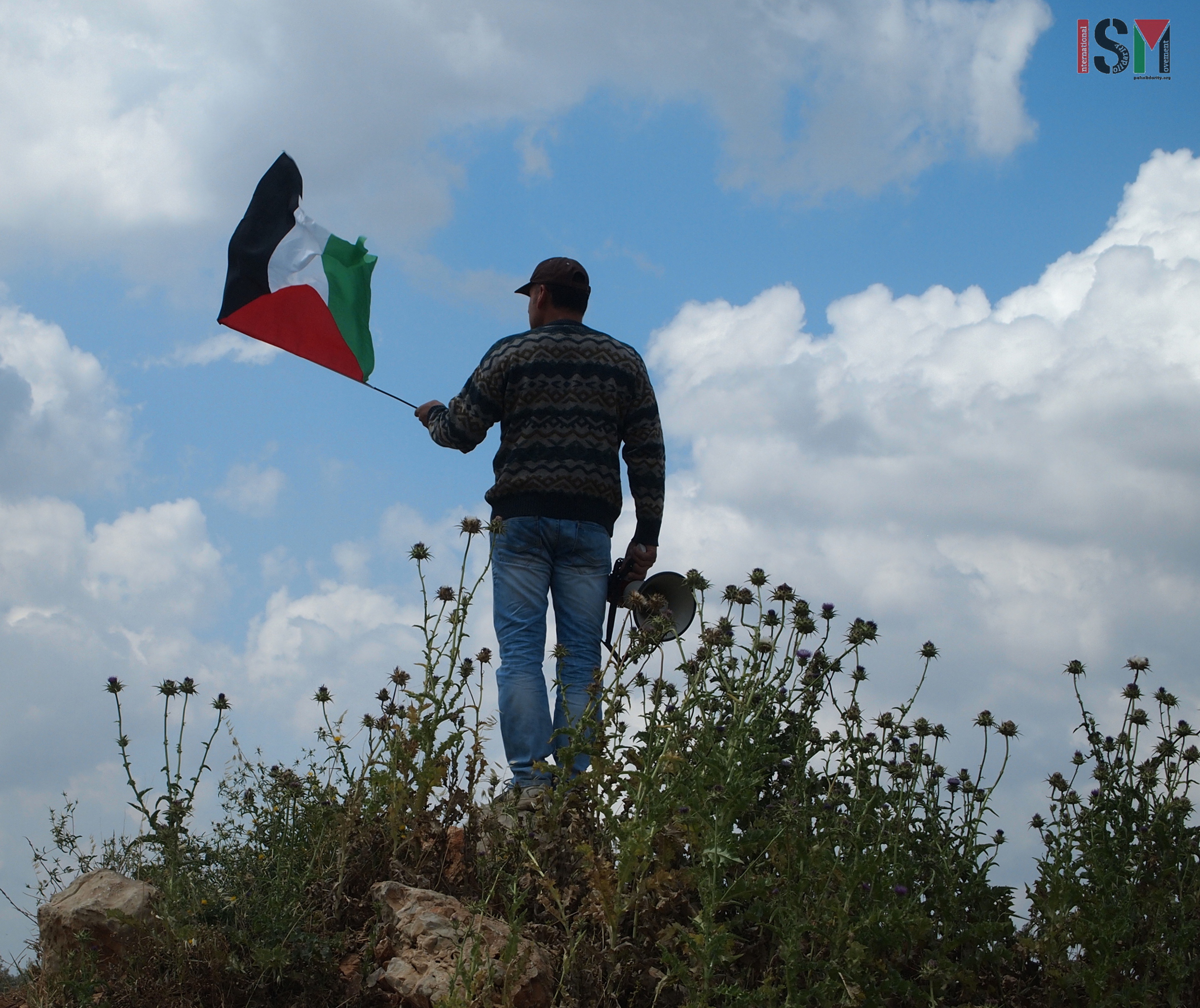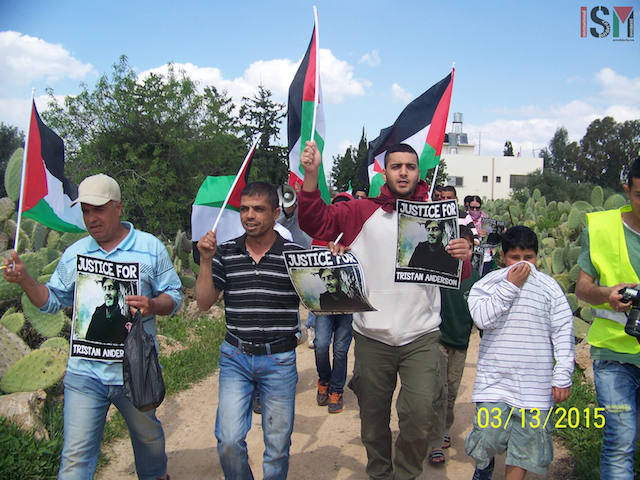Tag: Apartheid Wall
-
Ni’lin filled with tear gas during demonstration against continued loss of land and isolation
11th April 2015 | International Solidarity Movement, Ramallah Team | Ni’lin, Occupied Palestine Israeli forces began firing tear gas and rubber-coated steel bullets even before Friday’s protest had begun, as the people of Ni’lin were gathering near the local school to begin their march against the Apartheid Wall and continued loss of land. The protest was initially…
-
Four people shot in the first 5 minutes at Nabi Saleh protest
3rd April 2015 | International Solidarity Movement, Ramallah Team | Nabi Saleh, Occupied Palestine The weekly Friday protest in Nabi Saleh was met with extreme violence by Israeli Occupation Forces. Four people were shot in the first five minutes of the protest. One man and one woman were shot and wounded by snipers using .22 caliber live…
-
Palestinian protesters honor Tristan Anderson on 6th anniversary of his shooting
16th March 2015 | International Solidarity Movement, Ramallah Team | Ni’lin, Occupied Palestine During last week’s Friday demonstration in Ni’lin the inhabitants of the village commemorated the anniversary of US activist Tristan Anderson’s shooting during a protest in the village six years ago. At the demonstration Israeli forces fired several hundred tear gas grenades and canisters, rubber-coated steel bullets, and…



